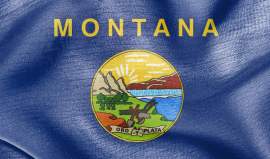
Severance Taxes at a Glance

Severance taxes are imposed on natural resources, such as trees, gasoline, coal and similar items. The tax is only imposed when those natural resources are used in a state, other than the state from which they came.
If lumber were harvested from New Jersey, and then used in New Jersey, the severance tax would not apply. If however, that lumber were used for construction in New York, severance taxes would apply. In most states however, severance taxes only apply to non-renewable resources. In those states, there would not be a severance tax on lumber, though that is likely to change in the immediate future.
The severance tax is not the burden of the entity making the purchase. There may be an additional sales taxes imposed on the natural resource and that tax would be the responsibility of the consumer. However, the severance tax is imposed on the company that harvests the natural resource.
The severance tax is imposed at a flat rate, based on productivity in regards to a particular natural resource. For example, oil may have a severance tax imposed on a per barrel basis. If that company only sells the natural resource in the state where it is harvested, they do not have to pay a severance tax. Severance taxes are utilized as a means of keeping non-renewable resources in state boundaries, while keeping the cost to consumers in that state lower.
The severance tax is different from the income tax and other corporate taxes. Companies that make no profit from the sale of the harvested natural resources, still may be subjected to the severance tax. In fact, any person that has a financial interest in a company that harvests natural resources, would be subject to severance taxes.
Generally, the tax is imposed on the volume of natural resources. For example, an oil well may be have severance taxes based on the amount of oil sold from that pump. In fact, recent reports suggest that British Petroleum will be responsible for a tax, much like severance taxes, on the amount of oil pumping into the ocean each day. The oil spill and impending disasters, is a good example of why the severance tax can sometimes be used to discourage abuse of natural resources.
Severance taxes are utilized to protect non-renewable natural resources. The tax revenue is sometimes used to fund programs to protect the environment. However, the government can use the revenue from severance taxes in any way they see fit.
NEXT: Sin Taxes at a Glance





















